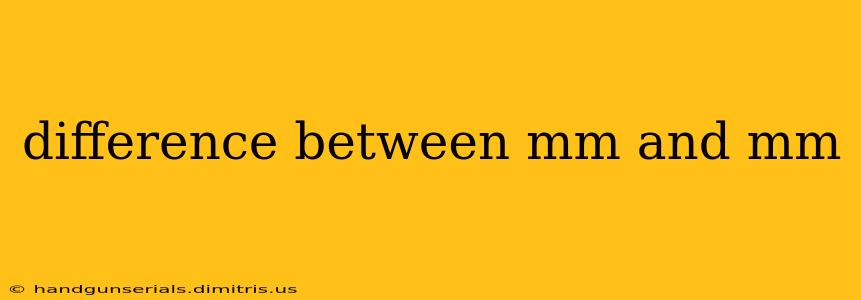This query is ambiguous. "mm" typically refers to millimeters, a unit of measurement. To understand the difference, we need clarification on what the second "mm" refers to. There is no inherent difference between one "mm" and another one "mm" – they are both millimeters.
However, if the question is meant to imply a difference in context or application of millimeters, then several possibilities exist:
Possible Interpretations and Differences:
-
mm as a Unit of Measurement vs. mm as an Abbreviation in a Different Context: The most likely interpretation is a confusion where "mm" might be used as an abbreviation in a different context unrelated to millimeters. For example, "mm" might be an informal shorthand used within a specific company or field. Without further information, any speculation would be purely conjectural.
-
Differences in Precision/Significant Figures: While two measurements both expressed as "mm" might appear identical, their underlying precision can differ. One might represent a measurement rounded to the nearest millimeter (e.g., 10mm), while another might be a more precise measurement rounded to a smaller unit (e.g., 10.23mm rounded down to 10mm). The context is crucial here.
-
Differences due to Measurement Error: Two measurements both reported as "mm" might represent slightly different values due to limitations in the measuring instrument or human error. This is particularly relevant in scientific or engineering applications where precise measurements are critical.
-
Typographical Error: There's always the possibility that the second "mm" is a typo.
To answer your question effectively, please provide more context. For example:
- Where did you encounter this question?
- What is the specific situation or problem you are trying to solve?
- Can you provide more information about the context in which the two "mm" values are being used?
Without additional context, the difference between "mm" and "mm" is simply that there is no difference. They are both the same unit of measurement.

